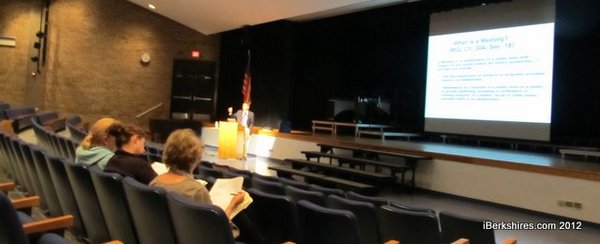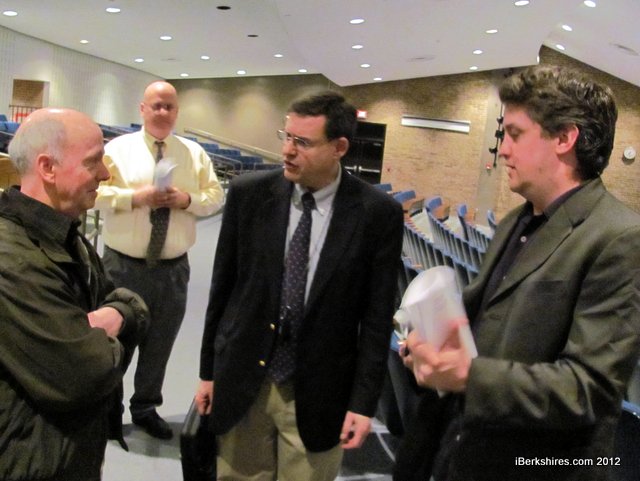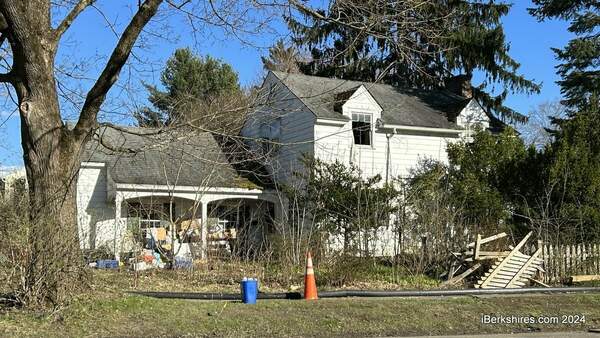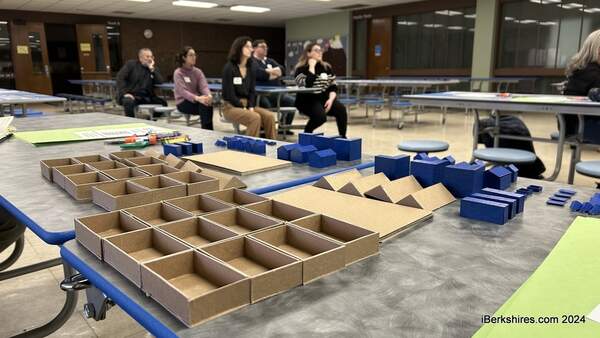
Open Meeting Expert Shares Limits, Principles Of Law
.jpg) Glenn Koocher of the Massachusetts Association of School Committees said boards are struggling with so-called 'outlier' behaviors at governmental meetings. |
The expert's opinion: They don't.
"You do not have to have a public comment period but if you do, you have to treat everybody fairly," according to Glenn Koocher, executive director of the Massachusetts Association of School Committees. "You don't want to turn the meeting over to the audience unless you're having a legitimate interactive form of dicussion about public policy."
Several members of the public have loudly objected to the City Council's newest rules of order that eliminated any public comments during council debate, claiming their 1st Amendment Rights are being violated. Koocher, however, reiterated that the law not only does not provide for public comment, it leaves such comment up to the discretion of the board chairman or president.
Koocher addressed some 70 to 75 local officials from various governmental boards on Monday night at Drury High School. He had been invited to speak by Ellen Sutherland, assistant to the school superintendent; North Berkshire officials and the public were encouraged to attend.
Koocher has frequently done open meeting presentations on behalf of the attorney general's office; on Monday night he was not, which allowed him, he said, a little more levity and editorial remarks. The 90-minute presentation and question period were taped for broadcast on NBCTV.
The attorney general's office has overseen the Open Meeting law implementation since 2010. Prior to that, it had been the responsibility of the district attorneys, which at times led to 14 different interpretations, said Koocher.
|
"The public has the right to know what's going on in public meetings," said Koocher, describing the chairman's role in serving the board and informing the public as being "essentially the broadcast announcer for the meeting."
Chairmen also may find they have to stop speakers from revealing confidential matters and to keep order. "It is the role of the chair to see that the meeting is run efficiently, appropriately and fairly," he said. He or she does have to tell the audience whether they are being recorded.
The rules are pretty clear on boards acting outside the public eye, "serial communications" in which board members may "deliberate" only one or two at time and the use of executive session. But findings on new forms of expression, such as blogs kept by officials, and old forms, such as gestures, are still cloudy.
Several area officials quizzed Koocher on a board's ability to control so-called "outliers" who regularly attend meetings to provide their lengthy opinions — wanted or not.
It's an issue boards are struggling with, he said, not just with the public but with board members who feel they need to speak on everything all the time. He recommended putting limits on speaking times and ensuring the audience knew the rules, including that the board would not comment, and that rules be enforced equally.
 Koocher speaks with School Committee member John Hockridge, left, and Councilor Keith Bona after the session. |
"I do not think you can permanently ban an American citizen from a public meeting, unless they present a legitimate danger to the safety of the people involved," he responded to a question by Councilor Keith Bona, adding that that was an issue for a judge.
Councilor Alan Marden had raised the issue of banning anyone who was consistently disruptive but the idea was later filed.
"If you can figure out how to deal with the outlier behaviors, we're looking for best strategies," he said. "It's really becoming an issue."
Tags: city council, open meeting,















